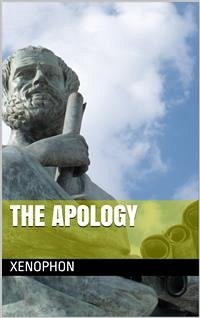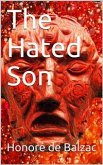The Apology of Socrates to the Jury, by Xenophon of Athens, is a Socratic dialogue about the legal defence that the philosopher Socrates presented at his trial for the moral corruption of Athenian youth; and for asebeia (impiety) against the pantheon of Athens; judged guilty, Socrates was sentenced to death. Xenophon’s literary rendition of the defence of Socrates evinces the philosopher’s ethical opinion about a sentence of death: that it is better to die before the onset of senility than to escape death by humbling oneself to an unjust persecution. The other extant primary source about the persons and events of the Trial of Socrates (399 BC) is the Apology of Socrates, by Plato. The Apology of Socrates to the Jury is Xenophon’s literary contribution to the many apologia written to explain the trial of Socrates (399 BC) to the Athenian public. Each book was the author’s literary perceptions and interpretations of the guilty-verdict against the public man Socrates. The author Xenophon presents Socrates’s megalegoria (boastful manner of speaking) at trial, as a tactic of legal defence against being a corrupt and impious man who is harmful to the Athenian polity. The principal event in the Apology of Socrates to the Jury is Socrates’s rejection of an attack upon his character, by Anytus. In the year 399, Xenophon was soldiering with the Greek mercenary army of the Ten Thousand (cf. Anabasis); hence he was not in Athens for the trial of Socrates. As an author, Xenophon’s primary source for the Socratic dialogue is the philosopher Hermogenes, who attended the trial. Nonetheless, in the literature of the trial of Socrates, Plato features Hermogenes in Phaedo (as a witness to the death of Socrates) but not in the Apology of Socrates. In literary comparison, Xenophon’s interpretation of Socrates’s megalegoria (boastful speaking-manner) as defence-at-trial is compared and contrasted with the interpretation of the legal defence presented the Apology of Socrates, by Plato. In the literary production of Xenophon of Athens, the final chapter of Memorabilia contains some of the apology text, which are the opening paragraphs of the Apology of Socrates to the Jury. The textual repetitions in the books, indicate that the Apology was Xenephon’s original conclusion to the Memorabilia.
Bitte wählen Sie Ihr Anliegen aus.
Rechnungen
Retourenschein anfordern
Bestellstatus
Storno









